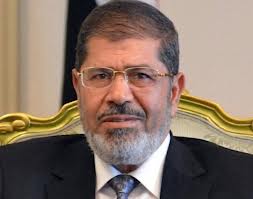
Turkey’s prime minister, Recep Tayyip Erdogan, is known far and wide for plain speaking. Not one to mince words, he says what he thinks, a practice most politicians stoutly eschew. In a world of dissimulation, prevarication and half-truths, there is something refreshing and bracing about a politician who has the courage and confidence to speak openly and candidly.
Erdogan, however, went too far when he blamed Israel for the events that resulted in the ouster of Mohamed Morsi, the first democratically-elected president of Egypt. Morsi, a Muslim Brotherhood leader, was overthrown in a coup by the Egyptian military on July 3.
Erdogan levelled his accusation five months after an apparent thaw in Turkey’s relationship with Israel. In May 2010, Israeli commandos stormed the Mavi Marmara, a Turkish ship trying to break Israel’s naval siege of the Gaza Strip, and fatally shot eight pro-Palestinian Turks aboard. In response, Turkey froze relations with Israel.
Israeli Prime Minister Benjamin Netanyahu, in an attempt to normalize bilateral relations with Turkey, belatedly acceded to Turkey’s demands. He issued an apology and promised to pay compensation to the families of the Turkish nationals who had been killed in the Israeli raid.
Shortly afterward, Turkish and Israeli diplomats launched talks to iron out the details, but no agreement has been struck so far. In lashing out at Israel recently, Erdogan was perhaps venting anger and frustration, or succumbing to his instincts.
It is true that the Israeli government was not exactly grief-stricken by Mori’s fate, given his ideological animosity toward the Jewish state, his record of antisemitic fulminations and his affinity for the rejectionist Hamas regime in the Gaza Strip (which Turkey has courted).
But Israel had no role, direct or indirect, in Morsi’s fall.
Morsi, having alienated countless Egyptians by concentrating power in his hands and unilaterally trying to impose a new shariah-based constitution on the nation, brought misfortune upon himself.
Gen. Abdul Fatah el-Sissi, the Egyptian defence minister who ordered his removal and arrest following days of massive anti-Morsi street demonstrations around the country, certainly did not consult Israel before pouncing.
This was an internal Egyptian affair, pure and simple.
Yet Erdogan, an Islamist who had cultivated good relations with Morsi and summarily recalled Turkey’s ambassador in Cairo after July 3, singled out Israel. “Who is behind (the ouster)”? he reportedly said at a meeting of his Justice and Development party in Ankara. “There is Israel. We have a document in our hands.”
The “proof“ that prompted Erdogan to accuse Israel of meddling in Egyptian domestic politics is contained in a video of a Tel Aviv University symposium in June 2011 on the Arab Spring. During the course of the conference, two of the participants, Tzipi Livni, then the Israeli opposition leader, and Bernard-Henri Levy, a Jewish French author, discussed the prospects of an electoral victory by the Muslim Brotherhood in Egypt.
At one point in their discussion, Levy, a French citizen, said, “If the Muslim Brotherhood arrives in Egypt, I will not say democracy wants it, so let democracy progress.“
Asked by the moderator whether the Egyptian armed forces should nullify a Muslim Brotherhood victory, Levy replied, “I will urge the prevention of them coming to power, by all sorts of means.“
Levy, of course, was expressing a strictly personal opinion. Yet Erdogan twisted it out of all proportion, conflating a comment by a private individual who does not even live in Israel with the supposed policy of a foreign government. Erdogan`s inaccurate and noxious accusation, which reeks of a malodorous conspiracy theory, is baseless and is the stuff of arrant nonsense.
Israel`s former foreign minister, Avigdor Lieberman, unfortunately waded into the controversy by likening Erdogan to Joseph Gopebbels, Nazi Germany`s propaganda minister. The comparison is foolish and trivializes history, but Lieberman was nonetheless right to be offended by Erdogan`s nasty accusation.
The United States, too, took offence, with the State Department correctly describing it as “offensive, unsubstantiated and wrong.”
Regrettably, Erdogan`s accusation falls into a disturbing pattern of demonizing Israel, which is far from perfect in terms of its short-sighted and counter-productive policy toward the Palestinians. During Israel`s invasion of Gaza in 2009, he accused Israel of “state terrorism,” conspicuously failing to denounce Hamas for setting off the war in the first place. At a conference in Vienna this past March, he said that Islamophobia should be considered a crime against humanity, “just like Zionism, like antisemitism and like fascism.”
By gratuitously lumping antisemitism and fascism with Zionism, Erdogan’s true colors were revealed. He may not be an antisemite, as Lieberman recklessly suggested, but he is definitely a politician who is not loathe to jump on the anti-Israel bandwagon.
At a moment when Syria is going up in flames, Egypt is tottering and Iraq and Lebanon are again sinking into the morass of sectarianism, Turkey and Israel need to work together to pursue a common strategic agenda to calm and stabilize the Middle East. But if Erdogan persists in maliciously attacking Israel and singling it out for opprobrium, the Middle East will be worse for it.